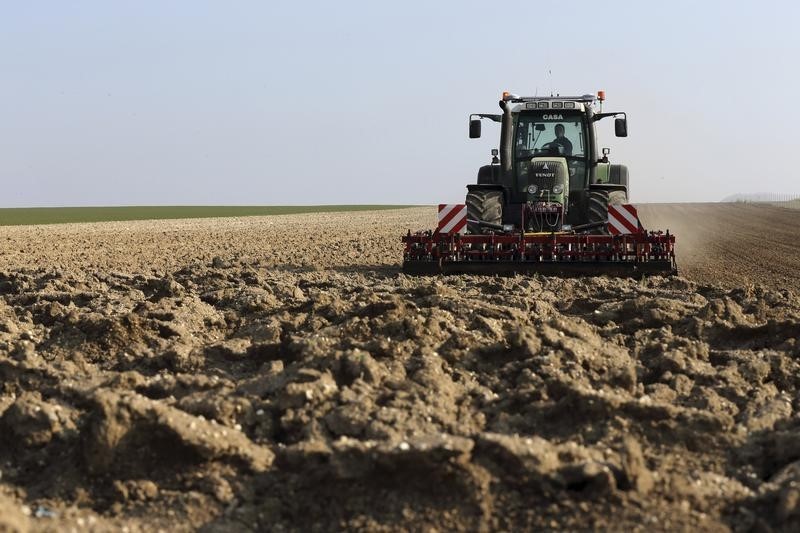By Colin Packham
SYDNEY, April 28 (Reuters) - Australia is expected to see higher rainfall than average from May to July, watering crops and boosting the fortunes of farmers in one of the world's top exporters of commodities ranging from grains to beef.
As the strongest El Nino in the last 20 years eases, there is a 70-percent chance much of Australia will see above average rainfall over the next three months, the country's Bureau of Meteorology (BOM) said on Thursday. The El Nino weather pattern typically brings dry weather to many regions.
Greater production could drag on global prices for grains such as wheat Wv1 and corn Cv1 , which are already under pressure from ample global supply.
Wetter weather would be particularly welcomed by wheat growers, who have just planted their latest crops.
"Higher-than-average rains will boost the national (wheat) production prospects, which are heavily reliant on Western Australia as the largest producer and largest exporter," said Phin Ziebell, an agribusiness economist at National Australia Bank.
Australia is expected to produce 24.5 million tonnes of wheat during the 2016/17 season, the highest level in three years.
But analysts noted that much of the rainfall predicted by the BOM was expected to arrive in June, two months after the start of the season, meaning its impact could be blunted in parts of east Australia that have been suffering from dry conditions. said production in areas such as Victoria, the country's fourth largest wheat producing region, may fall short of official estimates.
Wet weather will also water pasture and refill reservoirs, helping cattle farmers in the world's No.3 beef export rebuild herds.
Australia is expected to see beef exports fall to a three-year low after drought in key producing regions meant farmers were forced to slaughter animals at record levels - pushing the size of the national herd to a 20-year low. as supplies have been exhausted, farmers have embarked on rebuilding efforts, ending a three-year boom for cattle exporters, which have been forced to idle processing plants as supplies dwindle.
